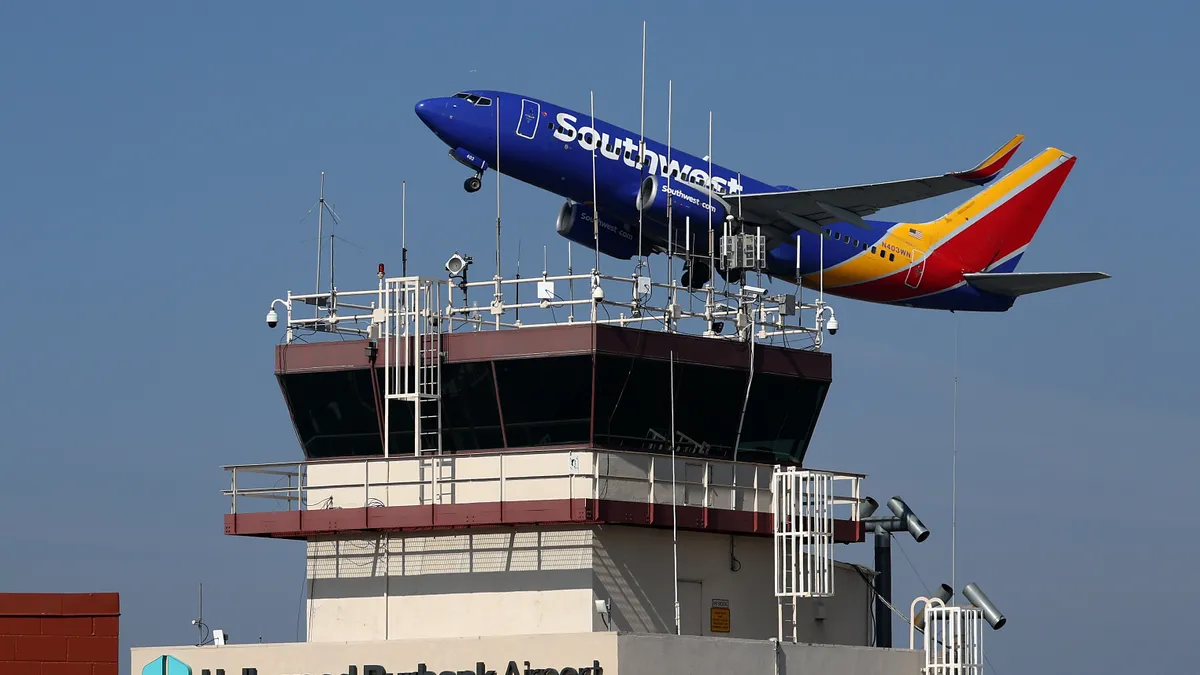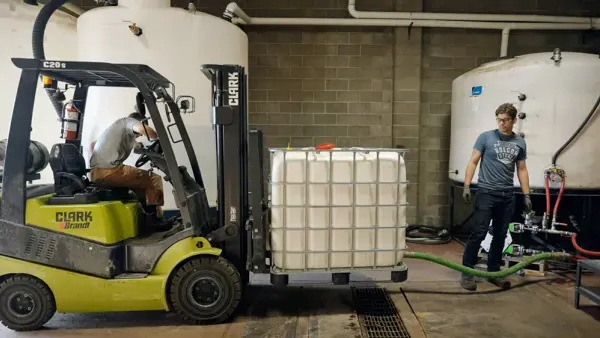Dive Brief:
- Southwest Airlines announced last week it had bought SAFFiRE Renewables, a company that makes sustainable aviation fuel from ethanol. The acquisition was made by the airlines’ subsidiary, Southwest Airlines Renewable Ventures, that it created in February to invest in additional opportunities to obtain sustainable aviation fuel.
- SAFFiRE — which converts corn stalks, leaves and cobs left after harvest into ethanol to be used for SAFs — was backed by and uses technology developed at the Department of Energy’s National Renewable Energy Laboratory.
- Southwest Airlines, which has a goal to replace 10% of its total jet fuel consumption with SAF by 2030, previously invested in SAFFiRE’s 2022 pilot project and also invested $30 million in SAF technology provider and producer LanzaJet through its renewable investment subsidiary.
Dive Insight:
Southwest Airlines also mentioned SAFFiRE earlier this year when announcing the creation of its renewable venture subsidiary and LanzaJet investment. LanzaJet, similarly, specializes in ethanol-to-SAF conversions, with a patented conversion technology utilizing the world’s first commercial plant specializing in ethanol-to-SAF.
In the February announcement, Southwest noted that it held licensing agreements and “certain exclusivity rights” to SAFFiRE’s technology for producing ethanol from corn stover, which the airline can then turn to sustainable aviation fuels using LanzaJet’s technology.
Southwest Airlines President and CEO Bob Jordan said in the March 28 release that “championing” sustainable aviation fuels is a key pillar of the airlines’ plan to reach net-zero by 2050, and the acquisition is part of its efforts to “propel this promising technology forward.”
“This acquisition marks Southwest’s transition from investor to sole owner of SAFFiRE, expressing our confidence in SAFFiRE’s technology and its potential to advance our sustainability goals as well as the goals of the broader industry,” Jordan said.
Following the acquisition, Southwest Airlines said SAFFiRE will move into the next phase of its SAF project where it will develop a pilot plant at Conegosta Energy’s Arkalon Energy facility in Liberal, Kansas. There, SAFFiRE will look to process 10 tons of corn stover each day to be converted into ethanol. LanzaJet will then do the ethanol-to-SAF conversion.
SAFFiRE CEO Tom Nealon, also president of Southwest Airlines Renewable Ventures, said in the release that “renewable ethanol is an important feedstock to realizing high-volume, affordable SAF.” According to SAFFiRE, the U.S. aviation industry will need 3 billion gallons of SAF by 2030, 12 billion gallons by 2035 and 35 billion gallons of SAF per year by 2050.
Southwest Airlines — the fourth-largest U.S-based airline by revenue and second-largest by market cap — updated its sustainability strategy in November to help meet its 2050 objectives, including a goal to save 50 million gallons of jet fuel by 2030 and 1.1 billion cumulative gallons by 2035 through its fuel savings programs.
The airline also added goals to electrify one-third of eligible ground-support equipment across its operations by 2030 and reduce half of single-use plastics from flights, by weight, by 2025 and eliminate all inflight single-use plastics, where feasible, by the end of the decade.










